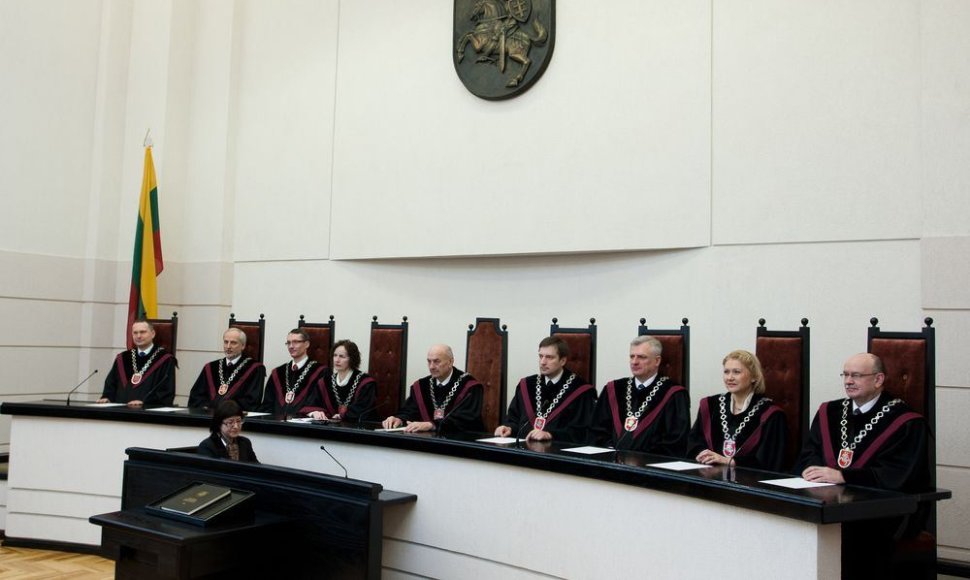Justice Minister Juozas Bernatonis has asked the court to specify the degree of importance of the position of Lithuanian language specialists in the parliamentary regulation of name-spelling, the court has said on Friday.
"The Constitutional Court has accepted the justice minister's motion to interpret the provisions of the ruling of October 21, 1991, in connection to the spelling of a person's first and last names in passport," reads the press release.
The minister inquired whether parliamentarians could make a decision without following the position "of a state institution consisting of professional linguists and specialists of the Lithuanian language," if it is laid down in the act of the institution.
Last month, the Lithuanian government turned to the State Lithuanian Language Commission, asking it for a conclusion on the possibility to legalize spelling non-Lithuanian names in their original form in documents, according to the justice minister.
The minister also asked the court whether the institution could initiate changes in name-spelling rules.
The Constitutional Court ruled in 1999 that "Lithuanian shall be the State language, therefore in the passport of the citizen of the Republic of Lithuania the names and family names of individuals, as well as other entries, are written in the state language of the Republic of Lithuania, i.e. in Lithuanian letters."
The Court also reiterated that in its 2009 ruling, which said that "after the name and family name of an individual have been entered in the state language in the passport of the Republic of Lithuania, it is allowed to specify the name and family name of the individual in other, non-Lithuanian graphic signs of writing and in non-grammaticised form in other sections for entries of the passport, when the individual requests so; such entry of the name and family name of the individual in non-Lithuanian graphic signs of writing in other sections for entries of the passport should not be made equal to the entry regarding the identity of the individual made in the state language."
The proposals to allow the original spelling of non-Lithuanian names are linked with requests of the Polish community and the situation of Lithuanian nationals who are married to foreigners.












